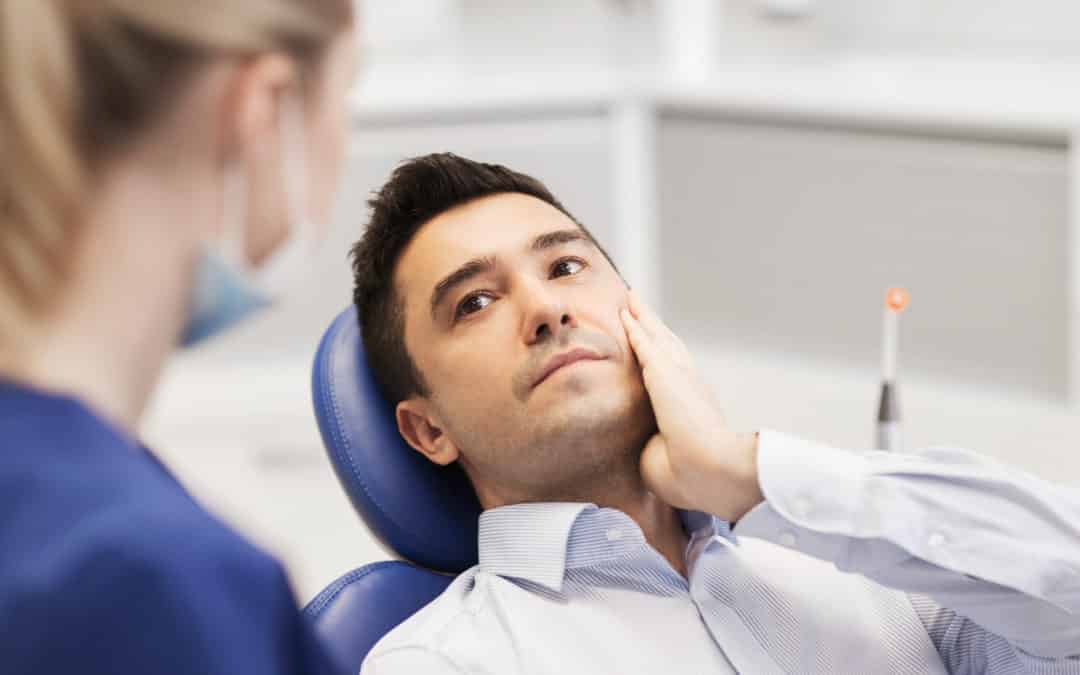Globally, oral diseases affect almost 3.5 billion people and more than 530 million children experience primary or milk teeth decay.
These are startling statistics, especially given the fact that tooth decay, in some cases, can lead to tooth loss. Oral diseases can also lead to other serious conditions such as stroke and heart disease.
However, regular dental check-ups have been associated with a reduction of oral health issues. The great news is, there are many experienced dentists in Colorado.
A visit to the dentist fills many with dread. The thought often leads to questions such as:
- Where can I find a really good dentist near me?
- What can I expect at a dental visit?
- Will it be painful?
Knowing is the first step to overcoming this fear. Read on to find the answers to these questions and many other concerns you may have.
The Answer to a Common Question – Where to Find a Dentist Near Me?
Look for a Lone Tree dentist or a dentist closer to you?. Here are some ways to find good dentists in Colorado:
- Good work never goes unnoticed, so start by asking your family, friends, or co-workers for recommendations
- You can also ask your family doctor
- If you have dental insurance, check the lists of dentists in your network that are in your area and find out more about them before selecting one
- Contact the Colorado Dental Association for a list of reputable dentists near you
It’s important to research before you choose a dentist. You should be comfortable with your final decision as this will be an ongoing relationship that will hopefully last for years to come.
What to Expect at Your First Dental Check-Up
Dental check-ups are routine for most dentists and will eventually be for you as well. That’s why you must find a dentist you’re comfortable with. Here are some of the things to expect at your first dental visit:
Detailed cleaning – Either your dentist or a dental hygienist may do your cleaning and it will include, removal of plaque build-up, scraping below the gumline, flossing, and polishing.
A Comprehensive Examination – Your dentist will examine your mouth, gums, and teeth for signs of disease or any other problems.
X-Rays – These help diagnose problems that may otherwise go unnoticed including decay between the teeth, jawbone damage, tumors or cysts, impacted teeth, or abscesses.
The time each of these will take will vary from patient to patient. Be sure to set aside enough time in your schedule. Also, plan time to ask your dentist questions and raise any concerns or symptoms you may be having.
Questions You Should Ask Your Dentist
Here are some other questions you should also ask your dentist, especially at your first visit.
How Often Should I Get a Dental Check-Up?
The answer to this question will be different for each patient, but a dentist will more than likely recommend you have a dental check-up every six months. Dental visits should usually take place once or twice a year, even if you have excellent dental hygiene.
But your dentist could let you know what’s best for you after your initial exam. Dental check-ups allow you to maintain good oral health and have your teeth cleaned regularly by a professional.
How Do I Maintain Good Oral Hygiene?
Your dentist will tell you a few things you can do daily to ensure you have good oral health:
- Brush and floss daily
- Avoid things that can stain your teeth including tobacco, coffee, wine, and tea
- Use products that have fluoride
- Eat a balanced diet that includes vegetables and fruits and that is rich in protein
- Avoid foods that can cause cavities such as acidic foods as well as those high in sugar
Good daily oral hygiene can help prevent a lot of issues including tooth decay and loss.
What Can I Do to Prevent Tooth Decay, Gingivitis, Gum Disease, and Other Problems?
There are a few things your dentist will tell you to avoid these problems. Here are some of the main things you can do:
- Eat a balanced diet
- Visit your dentist regularly
- Brush your teeth at least twice a day
- Floss at least once a day
Regular visits to your dentist will not only ensure your teeth are professionally cleaned, but your dentist will be able to identify any concerns that may lead to bigger issues.
What Are Some of the Warning Signs of Gum Disease?
Gum disease, also known as periodontal disease, affects one out of every two American adults over the age of 30. Lack of early treatment could lead to tooth loss. It’s also linked to some chronic diseases including Alzheimer’s, heart disease, and diabetes.
Your dentist will look for any signs of gum disease during your regular visits. These include:
- Bad breath
- Puffy or swollen gums
- Pus between your gums and teeth
- Tender gums
- Traces of blood especially after brushing
There are also other signs. Your dentist will assess any future risk you may have and recommend preventative steps you can take. If you think you have gum disease, seek treatment immediately. Early treatment can stop it from progressing.
How Can I Get My Teeth to Look Whiter?
The stains on your teeth can be on the surface or internal. You should avoid some of the foods mentioned above including wine, coffee, and tea, to avoid teeth stains. However, if your teeth are currently discolored, your dentist can do an in-house whitening treatment.
You can do this regularly to remove as much discoloration as possible. Some other services that can help may include applying veneers to badly affected teeth or composite bonding.
You should limit the use of over-the-counter (OTC) teeth whitening products as they can damage the roots of your teeth and cause sensitivity.
Will I Need to Take Dental X-Rays?
Your dentist will usually take a full set of dental x-rays, especially if you are a new patient. This allows him/her to identify any conditions you may have with your teeth. It also helps your dentist to monitor any changes that may occur throughout your treatment.
Bitewing x-rays are usually taken every year, while a series of full-mouth x-rays are taken every four to five years. Patients that have a higher risk of dental issues may need to have x-rays taken every six to 18 months.
Replace Your Fear by Finding a Dentist That Cares
Finding a dentist you’re comfortable with is one of the first steps to ensuring good dental hygiene. Knowing what to expect and feeling free to ask questions, should also put you at ease.
Willow Creek Dental is a great choice if you’re searching for a dentist in Lone Tree. We offer comprehensive dental care for your entire family.
After visiting us, if someone asks ‘Where can I find a dentist near me?’ We’re confident you’ll have the answer. Contact us today!





